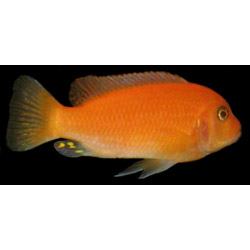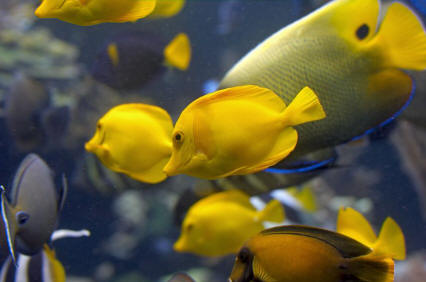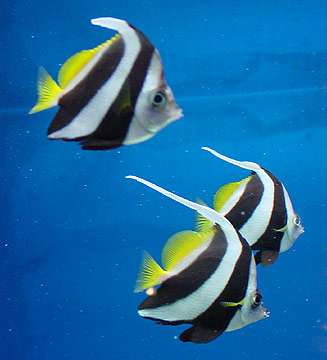Zebra red

|
Scientific Name: Metriaclima estherae Price: Upon Request Origin: Lake Malawi Family: Cichlidae NOT AVAILABLE NOW |
Technical Info
Temperature: 26 - 30 ℃
pH: 7.6 - 8
GH: 16 - 20
Max size: 13 cm
Min Tank size: 200 Ltr
Position in Aqua: No special swimming level
Description
A member of the Mbuna (or "Rock Dwelling" cichlid) family, their environment should be densely decorated with rocks and rock caves, fine gravel, fine gravel with crushed coral, or even sand for substrate, driftwood, Java Ferns, and Java Moss. Top, middle and bottom swimmers, their preferred tankmates may include other Mbuna or Malawi cichlids, and Synodontis catfishes (as bottom feeders). Red Zebras are Omnivores, and do well with fresh spinach, peas, zucchini, and lettuce. Live foods may include crickets, brine shrimp, meal worms, glass worms, and tubifex worms. Frozen foods like beef heart, hi-pro, daphnia, glass worms, plankton, and brine shrimp are also good choices. Remember, as with most members of the Mbuna family, too much protien foods (meat) may cause them to "bloat". 30% water changes weekly. Vacuum substrate every 2 weeks, move the rock structures at least once a month, possibly with each substrate cleaning, as this will help to curb the territorial instincts of most Mbuna.
Food
Omnivorous but does better with vegetables. Should not have too much protein and should have no fat. African cichlid flake or pellt foods are good as a staple, but the diet should be supplimented with fresh green vegetables such as spinach, romaine lettuce, peas or zucchini.
Breeding
Breeding these fish can be quite rewarding, as they are quite beautiful in their spawning and brooding rituals.
Compatible with
They are extremely intelligent and aggressive aquarium fish. Aquarium owners find that they are very active and react to movements outside of the aquarium, including attempts to attack an "invader" through the glass of the tank. It is generally advised not to mix them with other fish, as they can be very aggressive, with few exceptions.
Note
Aggressive towards other species, quite aggressive within species.

